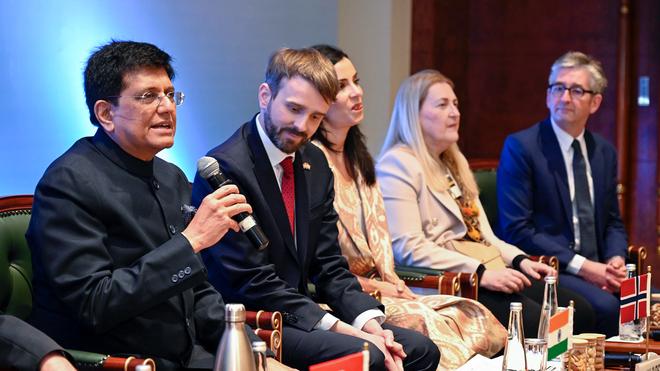New Delhi – The long-awaited India–EFTA (European Free Trade Association) trade pact has officially come into force, marking a major milestone in India’s push to strengthen economic ties with global partners. Union Commerce Minister Piyush Goyal hailed the agreement as a “historic step” that will unlock new opportunities for trade, investment, and job creation, benefiting both businesses and citizens.
The pact, signed earlier this year with the EFTA bloc comprising Switzerland, Norway, Iceland, and Liechtenstein, is aimed at boosting economic cooperation by reducing trade barriers, encouraging foreign investment, and enhancing market access. It is India’s first trade agreement with a European grouping in over a decade, and officials say it reflects New Delhi’s growing role as a key player in global commerce.
“This agreement will pave the way for new economic growth,” Goyal said while announcing the pact’s implementation. “It will open doors for greater investment, expand market opportunities, and generate more jobs across various sectors. The India–EFTA partnership is built on trust and shared ambition for prosperity.”
Under the terms of the pact, EFTA countries are expected to invest billions of dollars into India over the next 15 years, focusing on areas like manufacturing, renewable energy, pharmaceuticals, and infrastructure. In return, India will gain improved access to high-value European markets, particularly in services, industrial goods, and technology.
Trade experts believe the agreement will help diversify India’s export basket while strengthening its supply chains through partnerships with technologically advanced economies. For EFTA nations, the deal offers access to one of the world’s fastest-growing consumer markets, presenting opportunities for both large corporations and small businesses.
The government has also emphasized the pact’s potential to create employment through foreign investment and industrial expansion. Officials say special attention will be given to sectors that can generate large-scale jobs, such as textiles, engineering goods, food processing, and green energy.
Analysts view the pact as a strategic win for India’s trade diplomacy, especially at a time when global economic uncertainties are prompting nations to forge closer bilateral and regional ties. For India and EFTA, the agreement signals a new chapter in economic cooperation built on shared benefits and long-term growth ambitions.

